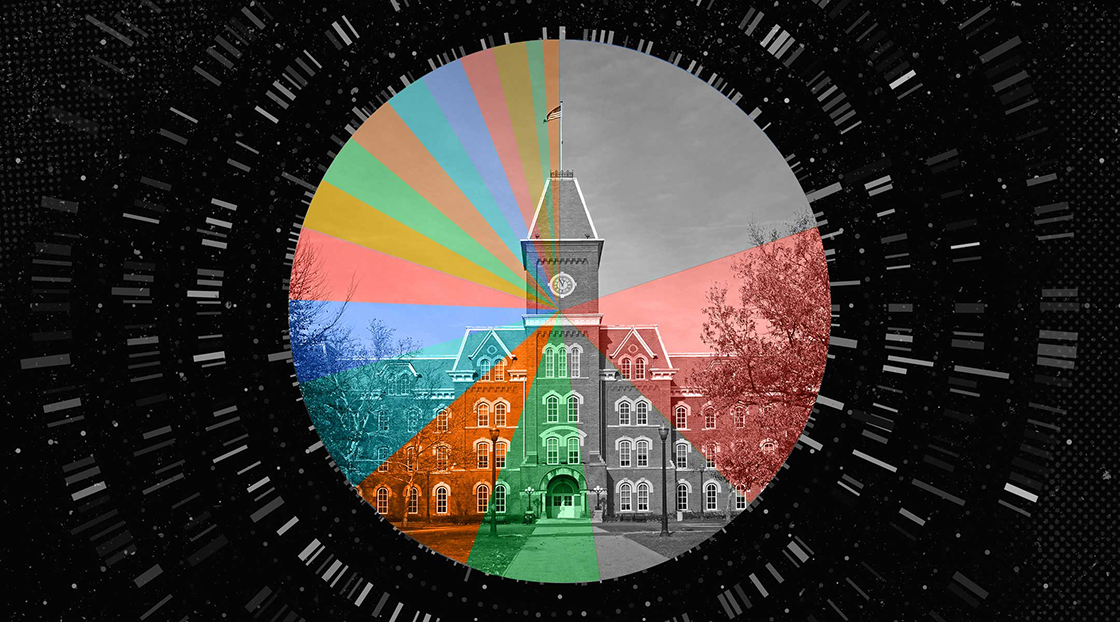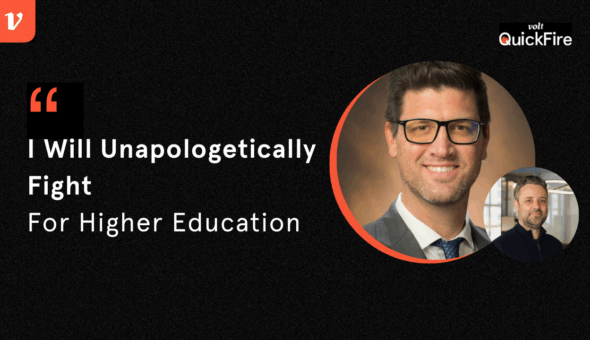For decades, colleges and universities have used the U.S. News & World Report college rankings as a pivotal marketing and recruitment tool. Likewise, prospective students and parents have relied on the rankings to aid in their college searches.
However, the rankings have faced increased scrutiny, leading some institutions to withdraw their participation. Consequently, U.S. News & World Report adopted methodological changes for the 2024 rankings. Although some stakeholders welcomed these changes, questions regarding the long-term impact and the role of rankings in higher education persist as the 2025 list approaches this fall.
Institutional Pushback
Despite the long-standing tradition, some higher ed institutions have begun to push back against the U.S. News & World Report rankings. Certain institutions ceased providing data to the publication, citing concerns about the methodology.
Eleanor Eckerson Peters, director of research and policy at the Institute for Higher Education Policy, explained that the rankings have historically favored wealth metrics over a college’s educational quality, leading equity-focused institutions to question their relevance.
The Duke University School of Medicine, for instance, withdrew from the annual medical school rankings, arguing that the metrics failed to capture essential aspects such as scientific creativity and a commitment to diversity.
“While the ranking system may have been intended to provide students with useful information to help them determine whether a school is a good match for them, it is now apparent that the metrics used have little connection to the values or the quality of the school’s educational program,” the school said in a January 2023 statement.

Evan Mandery, professor and chairperson of the Department of Criminal Justice at the John Jay College of Criminal Justice and author of the book “Poison Ivy: How Elite Colleges Divide Us,” hopes others will follow suit, particularly prestigious ones like Harvard and Yale because they won’t suffer as a result of their withdrawal.
“I reserve my greatest antipathy and scorn for the wealthiest elite colleges that from the very start should have said they would not participate in a system that tried to convey a false sense that they were somehow the best because they were the richest and admitted the richest kids,” he said.
When institutions fail to provide data or outright decline, the publication uses third-party data.
Even with the withdrawal of some institutions, the publication revealed that 99 of the top 100 ranked national universities and 97 of the top 100 national liberal arts colleges did report data for the 2024 rankings. Of the nearly 1,500 institutions it ranked in 2024, 79.9% provided statistical information, a slight drop from 83.5% the previous year.
“If they show up on the list, they love them. If they don’t, they’re going to be critical of them,” Jim Paskill, president of the higher ed marketing agency Paskill, said. “It’s a love-hate relationship a lot of the times.”

Changes to Methodology
The 2024 “Best Colleges Rankings” underwent notable changes in methodology, emphasizing social mobility and outcomes for graduating students.
New factors, such as first-generation graduation rates and post-graduation earnings, were introduced, while others, like class size and alumni giving, accounting for 18% were removed. Additionally, institutions that placed in the top 90% instead of only the top 75% were numerically ranked. The remaining institutions outside the top 90% had their ranking’s bottom decile range displayed. These alterations aimed to enhance transparency and fairness in the ranking process.
The publication noted that, with changes in individual schools’ data, the metrics adjustments could result in significant changes to schools’ rankings.
“There tend to be smaller changes in rank among those schools that typically place toward the very top or very bottom of the rankings,” the publication said. “That’s because their separation from most other schools insulates them somewhat from adjustments in methodological approach. In contrast, schools with data that resembles the breadth of other schools — which typically place toward the middle of the rankings, tied with several others — tend to incur changes that are larger in scale.”
Response to Changes
Peters appreciates the improvements in the methodology that now consider post-graduation outcomes, such as earnings and debt levels, along with the proportion of graduates earning more than a typical high school graduate. She also applauds the removal of metrics focused on wealth, alumni giving, faculty degrees and class size.
However, she pointed out the remaining limitations. Although earnings are now factored in, they may not fully capture a college’s impact on all students, especially those pursuing public service careers or facing gender and racial pay disparities.
Peters also noted concerns about the continued consideration of financial resources per student.
“It means that well-funded institutions may still have an advantage and still be showing up higher in the rankings,” she said.
Mandery suggests focusing on objective indicators like SAT scores or high school GPAs instead of wealth metrics.
Paskill acknowledged that although the changes have made the rankings more relevant, they only account for a small percentage of the overall score.
“I think they’re moving in the right direction. They just haven’t moved nearly far enough in focusing on outcomes,” he said.
As a result of the modesty of the changes, he doubts significant shifts in the rankings will occur.
“If you look at the national rankings, they’re pretty much the same as they were before the changes were made,” he said.
Usefulness for Students/Parents
Brady Norvall, founder and chief education officer at FindaBetterU, noted that while institutions often criticize rankings, students and parents find them valuable for providing clarity in the overwhelming college process.
“The paradox of choice is overwhelming. People are using the rankings as a filter because they give families an ability to say these are my best 100 options,” he said.
It’s easy to understand why students and their families want to make data-informed decisions about college, especially their return on investment, Peters admitted. However, she cautions that the rankings may not fully capture the value of higher education.
“It’s an incredible investment of time and money on behalf of them and their families. I can see all students relying on the U.S. News & World Report rankings, but especially students whose parents are college educated relying on this list in particular,” she said.
Paskill agrees that the rankings are a relevant part of the college selection process, especially among parents because they value the long legacy of the publication.
Many of the students and parents who Alecia Mahato, an IvyWise college admissions counselor and former assistant director of admissions at Duke University, works with use the rankings as a starting point for their college searches. However, once they consider personal factors, such as academic interests, location and school culture, families tend to look beyond the rankings.
She encourages students to “take rankings with a grain of salt because rankings are not an indicator of the best academic and personal fit.”
Mahato added, “It’s the responsibility of college counselors to really encourage students to broaden their lists and to help them find colleges that meet all of their needs rather than advising that they add colleges to their lists based on rankings.”
Peters highlighted the challenge posed by schools withdrawing from rankings because it complicates efforts to provide students with reliable data for informed decision-making.
“They deserve better data that really can help them understand and know that their investment of time and money will really pay off,” she said.
Ultimately, she views rankings as a flawed tool for helping students decide on a college. Financial aid offerings, net price calculations and curriculum alignment with student goals also factor into their college decisions, she added.
As a parent, Mandery doesn’t view the rankings as being a useful way parents can help their children decide on a college.
“It’s nothing about which community would best suit them. There’s nothing about what academic opportunities would be available to them that would jive most with their personalities and intellectual interests,” he said. “It’s what this whole system has been defined by, which is class anxiety. Parents are just trying to buy their kids’ way out of a risk of dropping in class and socio-economic standing.”
The publication did caution ahead of the most recent changes that “the rankings should be used as a tool for discovering the best fit schools; combined with personal considerations and additional resources.”
Marketing the Rankings
The institutions Paskill works with, often smaller liberal arts colleges, rely heavily on tuition and face fierce competition for students. Consequently, rankings serve as a crucial point of distinction in a crowded marketplace.
“Even though the research shows that less than half of students use these rankings in terms of their search process, it’s still one of those things that can help be a point of differentiation for schools in a competitive marketplace,” he said.
He suggests that institutions can make rankings more relevant by highlighting data points such as first-generation graduation rates and the financial impact compared to a high school graduate, which addresses return on investment.
Institutions that are the most successful at marketing their rankings focus on graduate programs, he said.
“If an institution is ranked, it tends to impact an MBA campaign. Even though it’s not tied directly to the MBA program, that ranking helps. Graduate students are shopping around a lot more than they did in the past. They may be looking at four or five different MBA programs. If there’s one school in their region that has ranked regionally for the U.S. News & World Report, that’s the tipping point that could be all it takes in comparing MBA programs,” he explained.
Even if institutions are in the middle of the pack, he said, they often decide to market their rankings based on the approach of their competitors.
Institutions may also decide to market their rankings even if they declined to provide data.
“U.S. News & World Report isn’t relying as much on institutional provided data. They’re looking at public sources of data. Based on that, if a school is still ranking even though they’re not providing data, it’s fair game. I’d certainly say it makes sense for them to market that,” Paskill said.
On the other hand, if institutions jump significantly in the rankings, they likely won’t be eager to tell that to students, Norvall noted.
“We jumped 80 places since last year—people are like whoa, what number were you? It’s great for the president of a university to argue for a bonus with the board of trustees, but that’s not something students are looking at,” he said.
While many institutions prominently feature their rankings in admissions presentations and websites, Mahato observed that students tend to remember authentic stories shared during campus visits more than quantitative rankings. However, she cautioned that institutions risk being overlooked if they fail to publicize their rankings.
When marketing rankings, Peters advocates for a shift toward promoting inclusivity and economic mobility rather than focusing solely on prestige and exclusivity. She encourages institutions to emphasize their mission and student-centered approach, regardless of their rankings.
“If they’re serving students well, that ought to be something they’re proud of and communicating to prospective students and their families,” she said.
Conversely, Mandery questions the value of institutions investing significant resources in boosting their rankings.
“Anything that distracts schools, that diverts money that should be spent promoting opportunity is a waste of money,” he said.
Larger Rankings Critiques
The rankings, as Peters pointed out, pose significant issues because they often encourage behavior that contradicts the core mission of colleges to enhance and improve students’ lives.
“Institutions that care about the rankings and want to go up in the rankings may act in ways that are not in service to students or the public good,” she said. For instance, colleges may be hesitant to eliminate standardized testing requirements out of fear of losing ground in the rankings.
“They can perpetuate the very societal inequities and prejudices that we like to think that higher education should work to eradicate,” said Peters.
Mandery goes further, labeling the ranking system as “indefensible” due to its detrimental impact on the admissions process. He noted that historically, and even with recent methodological changes, the rankings primarily measure institutional wealth.
“They have just exacerbated the extreme hoarding that elite colleges have engaged in. It equates being a school with the highest endowment and conveys a false sense that it’s the best,” he said. “They’re looking at spending per student and faculty salaries. They’re looking at all these things that great medium-sized institutions could never compete in even though they offer excellent education and good upward mobility.”









